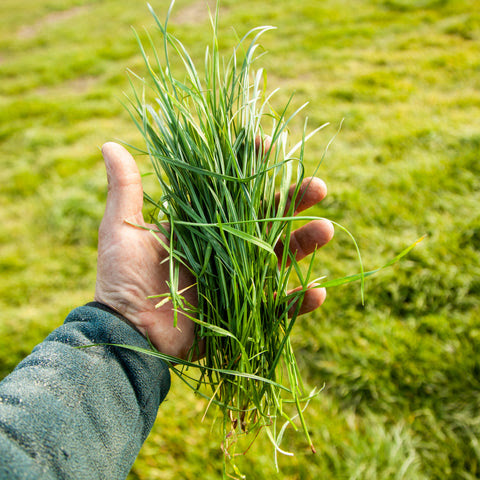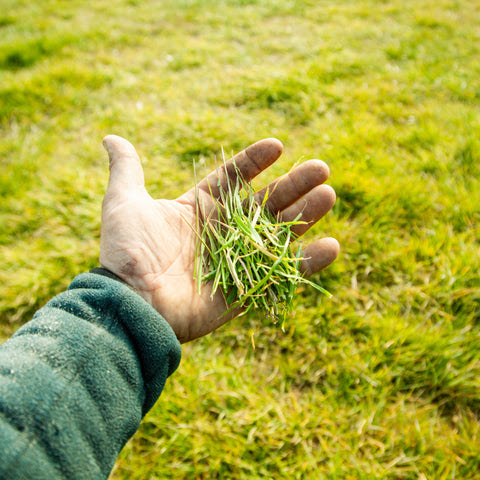No Products in the Cart
When we first decided to get laying hens on the farm it was less to do with our overwhelming desire to get up at 5am every morning and go to bed at 10pm at night, but more to do with the urgent need to repair our pasture. Years of overgrazing and under-management has left our fields looking very sorry for themselves. Standard farming practice dictates that we power harrow and reseed every 8-10 years, on top of annual rolling, scarifying and fertilising, as well as applying a good dose of herbicides and fungicides. We were not keen on all this extra work and even less keen on disturbing the very soil we are trying to look after. We had to find another way. So, as with all good discoveries, we trawled YouTube, spent hours and hours watching and learning from the likes of Joel Salatin and Richard Perkins, then we read their books and finally ended up visiting the latter in Sweden to hear straight from the horse's mouth. Those words were: "the power of chicken shit".


Taking and applying this knowledge back on the farm, the results really do speak for themselves. Here are two pictures from our pasture not 50ft away from each other. The first one is a shot of where the chickens spent just three days on a patch back in November in their mobile coop the second is from a patch they have yet to work their magic. Our only job was to make sure they are fed, moved and the delicious eggs where collected at the end of the each day.
When we farm in this way, letting the chickens do what they do best: scarification; fertilisation and pest control, then we can do what we do best: watch the grass grow ever higher whilst producing the best food money can buy.
With the sale of our pastured eggs, we hope to plant trees this winter, turning our pasture gradually into a silvopasture system, as well as extend our no-dig vegetable garden so we can feed more people proper, nutrient-dense, food grown in soil that is managed regeneratively not degeneratively.